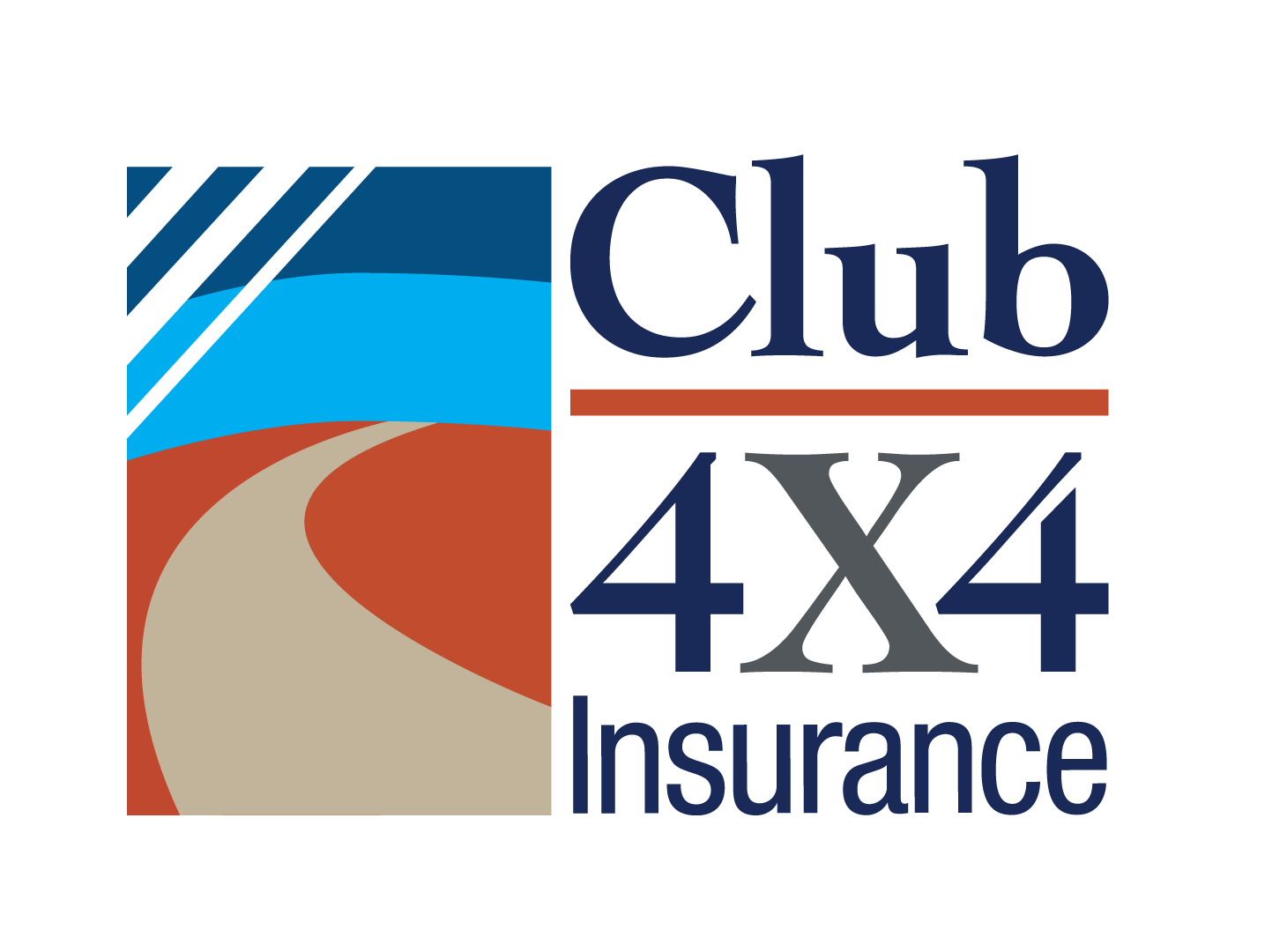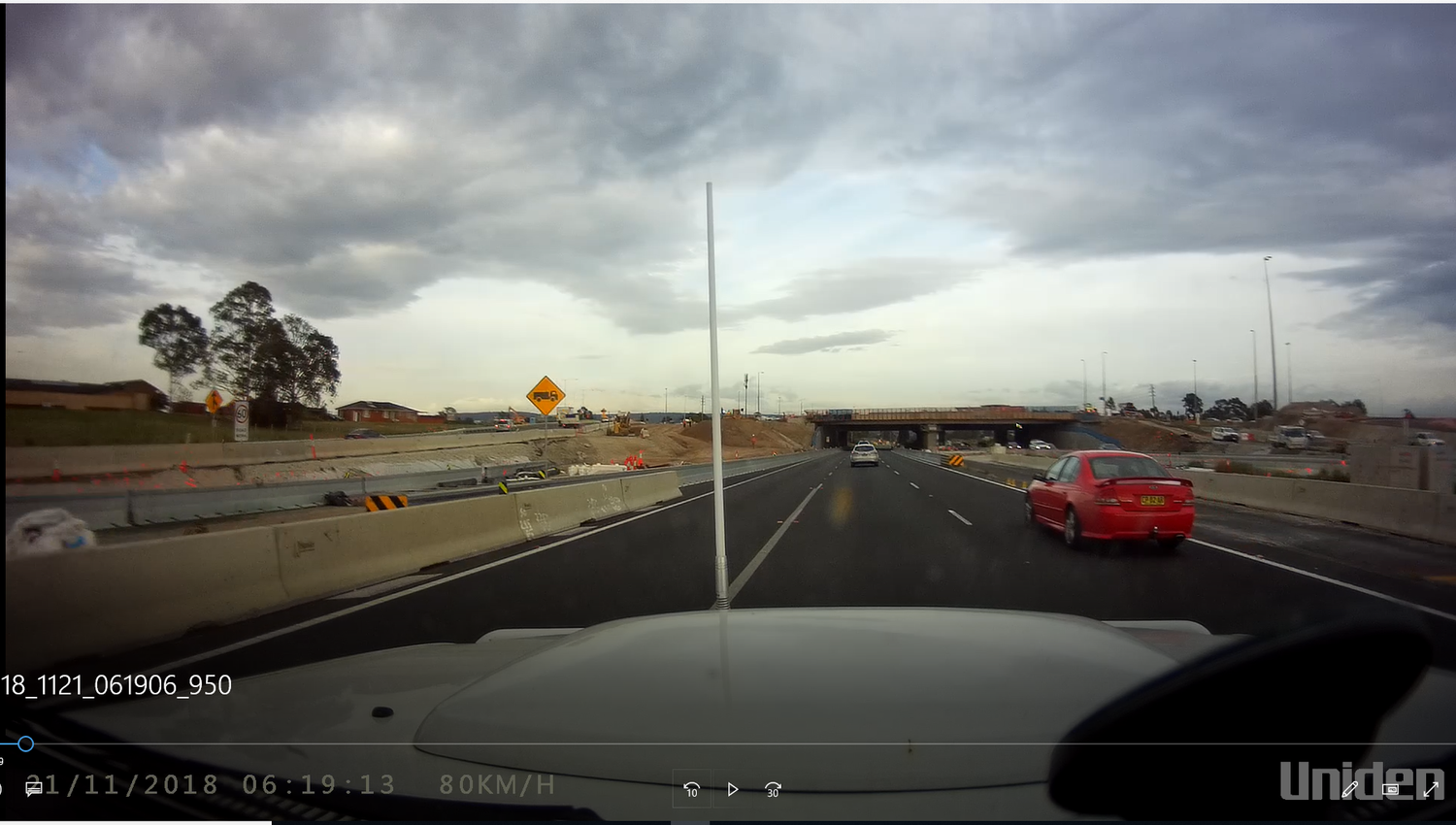We sell a number of Dashcams in our Safety Shop, and they can definitely come in handy during an incident. We happened to have a customer of ours recently share dashcam footage of an incident they were involved with, and they’ve given us express permission to share it.
The video of the incident is below, but in short, our customer was driving along when what appears to be some concrete style block(s) fall off the tray of a vehicle driving the other way and strike the customers vehicle. The impact is such that it even sends pieces of concrete flying off into a nearby fence.
In this case, the customer also had a rear facing camera which appears to pickup the offending vehicle pulling over after they are beeped at. However, I’ll explain a bit more about how this could have been handled if they hadn’t in a little bit.
Dashcam footage of an incident is gold when it comes to an insurance claim. It shows in detail the position of the vehicles and exactly how things transpire, with no agenda. If a dashcam has GPS, you’ll see the location and time of the incident which is very useful, and even the speed at which the vehicle is travelling.
It makes it easy to see who was at fault, and it can also help identify the offender. Imagine if the driver of the other vehicle in this instance had just kept driving, and there was no footage? In this instance, there would be no way to hold anyone responsible unless the driver had somehow remembered the registration number of the other vehicle (which is highly unlikely). And even if they did, the other party might possibly deny the whole thing which would then make it a he said she said unless there were other witnesses.
In this instance (with a dashcam), if the driver had continued on there is video evidence (including a registration number) that can be used to help identify the individual responsible. Now, the truth is that an insurance company can’t do anything to help identify the driver or owner of the vehicle in this circumstance, although there are ways that you as a civilian can. If you have evidence of someone’s involvement in a crash via dashcam footage, you can apply to your state transport authority for the owners details to be released to you. And if they refuse, you can go to the state Police authority who can provide those details.
There will be a fee involved, but the chances are that you could have it reimbursed as you chase the other party who you can now identify. And if they don’t want to play ball, you now have the owners details and dashcam footage which you can pass onto your insurer, who will then chase them for the damages. The beauty here is that once an insurer generally has the details of the at fault party, your excess is generally no longer payable, and if you’ve already paid it, it gets refunded.
In the above case, the dashcam footage was clear proof of what happened, which coupled with the details of the other party who was good enough to stop, meant a pretty easy understanding of what had happened and allowed the claim to process quickly.
If you are after a Dashcam yourself, you have a number of options. We sell a number in our Safety Shop (at discounts for members and policyholders), but they are widely available. Key things to think about when you buy a dashcam are:
- Size and dimensions – (particularly if you use other driving aids like Tyre Pressure Monitors, HEMA navigators etc on your dash)
- Resolution – Dashcams can vary in resolution, which can be a measure of the quality of the video captured. At minimum you probably want HD these days, but you can now get 2.7K and even 4K versions.
- Night capability – Some dashcams have better low light performance. It is important to understand the performance of the model you choose, else you may find that if something happens at night, the number plate of the other vehicle may be difficult to determine
- Recording modes – some models continually record, and others have G-sensors and a backup battery that will activate when the car is off it it detects a shock/impact. It is important to know how the one you intend on buying works so you can make the most of it and ensure it is fit for your purpose.
- GPS capability – some Dashcams have GPS capability, which means they will record the speed of your vehicle at the time, as well as the exact location of any incident. Others will simply record the video with no additional information.
- Do you want a rear facing camera too? – some models will come with this feature and some of the latest models will even allow you to wire them up to use them as a reversing camera if you have an older vehicle which can be great if you are worried about hitting something or not being able to see what is behind your Rig.
I hope this helps explain why Dashcam footage is useful, and how you can use it even if the other driver doesn’t stop. As always, if you’ve got questions, please comment below and we’ll do our best to answer them.
Aiden


